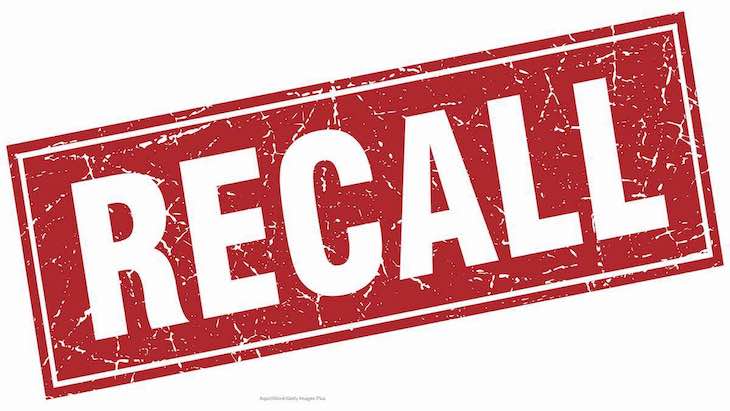The U.S. Food and Drug Administration (FDA) is taking steps to strengthen the process they use for issuing a public warning about food recalls and notification of recalls. While most companies collaborate with the FDA when a problem, whether it’s an undeclared allergen, foreign material in a product, or contamination with a pathogen, the agency sometimes need to provide advice to protect consumers.

Dr. Scott Gottlieb, Commissioner of the FDA, says the agency has finalized the mandatory recall guidance for foods. While most companies do cooperate with the government when a problem arises, some cases will not voluntarily issue a recall.
FDA was given mandatory recall authority in some cases by the Food Safety Modernization Act of 2011. The agency has used this power just once, when a mandatory recall order was issued in April 2018 about powdered kratom that was manufactured by Triangle Pharmanaturals was found to be contaminated with Salmonella bacteria.
In addition to this recall power, the FDA can issue public warnings to consumers. In 2018, the government issued a public warning on imported crab meat from Venezuela when a Vibrio outbreak was associated to that product. And a public warning was announced last year on recalled vegetable products. This year, warnings were issued for Kellogg’s Honey Smacks cereal, McCain Foods vegetables, and romaine lettuce.
And finally, the FDA will disclose retail information for recalled food products. The USDA already does this, releasing retail distribution lists for recalled meats and other products it regulates. FDA did this when a 2018 Salmonella Adelaide outbreak was linked to pre-cut melons.
Overall, the final guidance that was issued on February 7, 2019, will “outlines circumstances when a company should issue a public warning about a voluntary recall, describes the general timeframe for companies to issue such a warning, discusses what information should be included in a public warning, and describes situations where the FDA may take action to issue its own public warning should a company’s warning be deemed insufficient.”
While the number of recalls for 2018, at 7,420, were at a five year low, consumers may notice that recalls seemed more common. The FDA believes this is because they are publicizing these incidents more widely.
In addition, FDA is looking at new technologies to notify consumers when they have purchased a recall product, are developing technology that can screen for multiple allergens, and improving product traceability, looking at blockchain as one method to trace a contaminated food back to its source.




